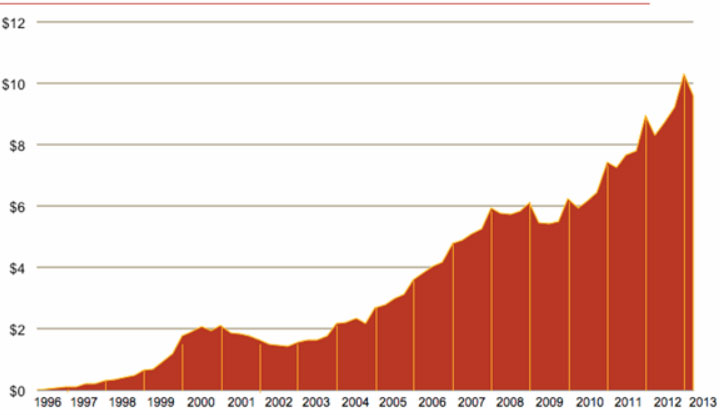For many small business owners, analytics — measurement and tracking of metrics — is considered the “ugly duckling” of marketing. Tracking ROI isn’t as sexy as measuring website traffic or online conversions, so it’s rarely discussed and often overlooked. Sometimes you’ll only remember to track your efforts after you’ve launched a marketing campaign — and at that point it’s too late.
Unfortunately, it is often difficult or impossible to retroactively add tracking mechanisms to measure marketing campaign performance. So, this is why it is important to consider how you will measure campaign performance before you finalize an affiliate marketing campaign, launch your next media buy, click send on an email blast, or invest time and money into a traffic or conversion optimization strategy.
Why is Marketing Campaign Performance Important?
Everyone says tracking is important, but have you ever really thought about why? Couldn’t you simply get away with driving more traffic and conversions to be successful?
The truth is “No, you can’t!”
You absolutely will not be successful with online marketing without proper tracking in place. Here’s why…
- First, you need tracking so you can “cut the fat” and ditch any campaigns that are losing money. Not every marketing campaign you launch will be successful. So, you need a way to determine which marketing efforts are wasting your time and money.
- Second, you need to track marketing efforts so you can reinvest more of your budget into campaigns that generate positive ROI. For example, one of my clients was able to boost profits by 50 percent simply by turning off an unprofitable advertising campaign and reinvesting the same ad budget into a profitable ad campaign. No change in ad spend. A simple tweak in ad budget allocation improved profitability.
Five Ways to Measure Marketing Performance
Hopefully now you’re convinced that tracking is essential — but what does it mean in practice? Here are five tracking systems every small business can use to measure marketing campaign performance.
- Website Analytics: This one is more obvious than others. It is important to track how much website traffic you get from all of your marketing and advertising campaigns. Plus, how many of those visitors convert to leads via webform submissions.
- Phone Call Tracking: I’m always surprised by how many businesses don’t have phone call tracking in place. It’s a simple tactic to track how many phone calls are generated from each of your marketing and advertising campaigns. For example, you can use a different phone number for each of your campaigns and then you’ll easily know how many calls came in from each advertisement.
- CRM Sales Tracking: A customer relationship management (CRM) system is simply a database to store your leads, sales, and any other business contacts. You can also use an Excel file or a Google Spreadsheet to get started and then migrate to more robust CRM tools like Salesforce or Infusionsoft. CRM tracking is critical for non-e-commerce businesses; e-commerce businesses can track sales using website analytics since the sales occur online. However, non-e-commerce businesses make sales over the phone and in-person where website analytics are not relevant.
- Split Testing: Split testing, or A/B testing, is a conversion optimization tactic. However, I include it here because split testing is worthless unless you are tracking everything correctly. For example, if you’re split testing a webpage, then you need to measure how that impacts the number of phone calls (phone call tracking), the number of Web form submissions (website analytics), and the number of overall leads and sales (CRM tracking).
- KPI Tracking: The four elements above are all tracking systems you need to measure performance. Key performance indicator (KPI) tracking is how we bring it all together into a concise list of metrics that will give you X-ray vision into all of your marketing campaigns. A KPI is any data point that gives you insight into your marketing performance. As a small business owner, it’s your job to monitor the correct KPIs — and then make data-driven decisions to improve the overall marketing performance of your campaigns.
Phil Frost is a Co-Founder and Managing Partner of NYC-based Main Street ROI, a company that teaches internet marketing strategies that actually work for small businesses. Click here to recieve their Ultimate SEO Checklist to help your company rank higher in Google. A version of this post originally appeared on the author’s blog.
© YFS Magazine. All Rights Reserved. Copying prohibited. All material is protected by U.S. and international copyright laws. Unauthorized reproduction or distribution of this material is prohibited. Sharing of this material under Attribution-NonCommercial-NoDerivatives 4.0 International terms, listed here, is permitted.













